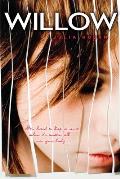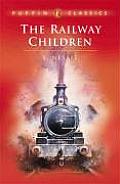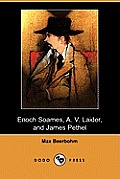Describe your new book. Willow is the story of a young woman, a seventeen year old girl, who loses her parents in a car accident, an accident for which she was responsible. She is so overcome with guilt, so isolated and alone, that she feels she has no other way to deal with her pain than by cutting herself.
Willow is the story of a young woman, a seventeen year old girl, who loses her parents in a car accident, an accident for which she was responsible. She is so overcome with guilt, so isolated and alone, that she feels she has no other way to deal with her pain than by cutting herself.
Sounds pretty grim, I know. But while the above may be the bare bones of the plot, the themes that Willow explores are really not so dire. Willow is really about hope, about redemption, and above all, about the power of love to heal. Now, Willow is not the right book for everyone, no question, but I'd like to assure your readers who are a little... let's say, frightened by the sound of it, that many, many people have told me that they found it to be a very uplifting book, a very hopeful book, and above all a very romantic book.
What fictional character would you like to be your friend, and why?
Sherlock Holmes. That's not to say I'd like him to be my friend so much as my mentor. I've always adored Sherlock (I made sure to pay homage to him in Willow) and as with so many readers, he actually seems real to me, he's possibly the most charismatic character in literature. Why would I like him to be my mentor? So he could teach me, of course! He was such a genius, and Conan Doyle was an even greater genius to have created him.
 Introduce one other author/illustrator you think people should read and suggest a good book by him/her.
Introduce one other author/illustrator you think people should read and suggest a good book by him/her.
The Railway Children by Edith Nesbit. I've been known to walk up to strangers in bookstores, hand them a copy, and personally escort them to the cash register. The Railway Children is truly one of the greatest works in the juvenile literature canon, but like any great work, can really be appreciated by anyone of any age.
Describe your most memorable teacher.
That's easy. The most memorable teacher I ever had was Patrick Collins, and I'm very happy to have the chance to publicly acknowledge him. Patrick was a remarkable teacher in many, many ways, but I will always remember him for what he taught me about writing. He said that the author must always be emotionally honest with their audience. We were reading Maupassant's The Necklace at the time, and Patrick said that great though the story was, Maupassant had failed his readers. He deliberately refers to the paste necklace as a diamond, he deliberately deceived his audience, and this was something a writer should never do.
What is your favorite literary first line?
"Death ends a life, but it doesn't end a relationship," from I Never Sang for My Father by Robert Anderson. I first came upon this line in high school, it was something that had never occurred to me before, but I realized immediately how true it was, how profound. This is something that everybody will learn at some point. I had this line in my head the entire time I was working on Willow. It is one of the underlying themes of the book, and something that Willow comes to terms with throughout the course of the novel. Unfortunately, she learns this lesson much earlier than most of us have to.
 What book by another author do you wish you had written?
What book by another author do you wish you had written?
Well, really, I think the question should be what five hundred books by other authors do I wish I had written, or even a thousand! There are an enormous number of works I would love to claim authorship to, but if pressed to name just one... I'm going to go with Enoch Soames, a short story by Max Beerbohm. This story of a failed writer, his unbelievable hubris, and his comeuppance is one of the most delicious, fun, witty confections you'll ever read. Sometimes, when I'm walking down the street, I'll laugh out loud at remembered lines — strangers tend to get uncomfortable, but I can't help it!
Is there a maxim or philosophy that you live by?
I always like to say that I'll do anything, as long as it can be done in high heels. Not only does this reflect my fashion sensibilities, but it's a great way of getting out of chores as well. However, I think that Miss Piggy was really on to something when she said that she never ate more than she could lift. Her kind of style and glamour are in short supply today.
If you could have lunch with a person of your choosing — living or dead, fictitious or real — who would it be?
Does it have to be just one? How about a little luncheon, with three very special guests! The first would be Lincoln. Now, there are many, many reasons to split a sandwich with Lincoln, but the main reason I'd invite him is because, as a writer, I'm in awe of his extraordinary command of the language. For sheer beauty, the Second Inaugural and Gettysburg rank with John of Gaunt's deathbed speech from Shakespeare's Richard II as some of the greatest prose ever written. Then I think Julia Child should join us, as she was such a bon vivant that she'd make any gathering go. I'd like to go on record here by saying that I've always adored the divine Julia, and I'm thrilled by the current interest in her. Of course I'd ask her to make the lunch. This may sound rude to put a guest to work, but I think she'd be happy to oblige. I'm going to guess she'd go with something classic like a roast chicken. I'm picturing a little tarragon sauce on the side, and an incredibly rich dessert, like a chocolate mousse. Of course, as with Lincoln, there are countless reasons to admire Julia Child, but I will always be indebted to her for teaching my husband to make omelets! The third person I'd like to have over would be Isaac Newton. Now, Newton was reputed to be something of a curmudgeon, and would probably bring the group down somewhat, although he might brighten up at Julia's dessert... But I really feel I owe Isaac a great deal, and it would be rude not to have him over for at least one meal. I went to graduate school in Physics, and while I slept through many lectures, there was one thing I learned that I have never forgotten. Isaac Newton was asked how it was that he was able to achieve such extraordinary th